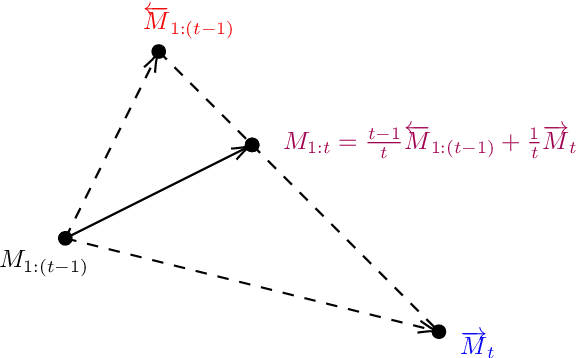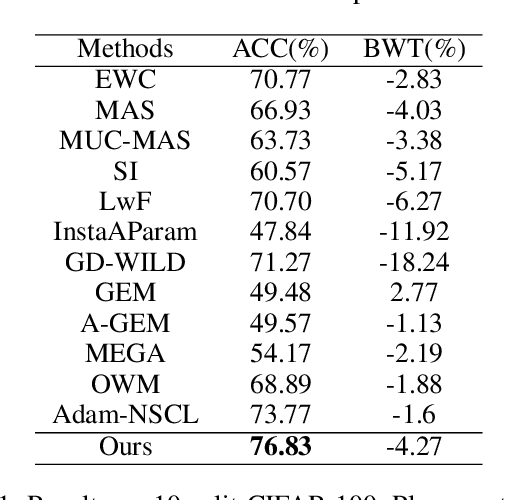Hanglu Chu
Towards Better Plasticity-Stability Trade-off in Incremental Learning: A simple Linear Connector
Oct 15, 2021



Abstract:Plasticity-stability dilemma is a main problem for incremental learning, with plasticity referring to the ability to learn new knowledge, and stability retaining the knowledge of previous tasks. Due to the lack of training samples from previous tasks, it is hard to balance the plasticity and stability. For example, the recent null-space projection methods (e.g., Adam-NSCL) have shown promising performance on preserving previous knowledge, while such strong projection also causes the performance degradation of the current task. To achieve better plasticity-stability trade-off, in this paper, we show that a simple averaging of two independently optimized optima of networks, null-space projection for past tasks and simple SGD for the current task, can attain a meaningful balance between preserving already learned knowledge and granting sufficient flexibility for learning a new task. This simple linear connector also provides us a new perspective and technology to control the trade-off between plasticity and stability. We evaluate the proposed method on several benchmark datasets. The results indicate our simple method can achieve notable improvement, and perform well on both the past and current tasks. In short, our method is an extremely simple approach and achieves a better balance model.
 Add to Chrome
Add to Chrome Add to Firefox
Add to Firefox Add to Edge
Add to Edge